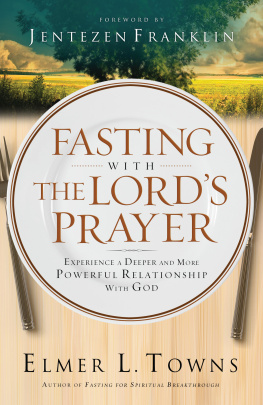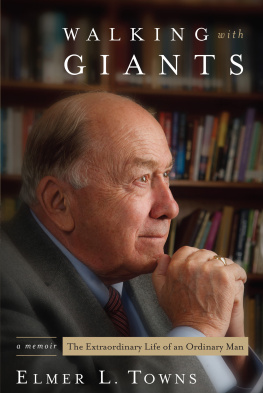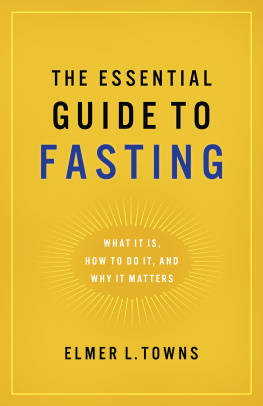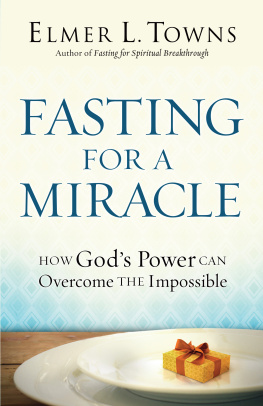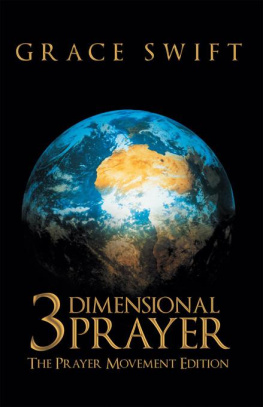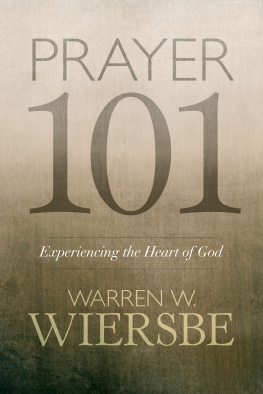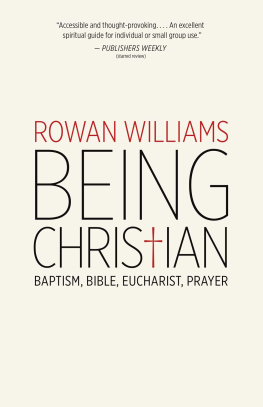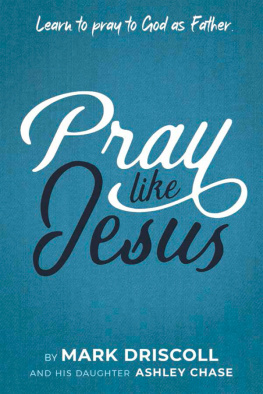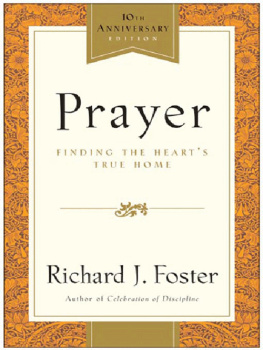
10 Questions about Prayer Every Christian Must Answer, Digital Edition
Based on Print Edition
10 Questions about Prayer Every Christian Must Answer
Copyright 2014 by Alex McFarland and Elmer L. Towns Literary Trust Inc.
B&H Publishing Group
Nashville, Tennessee
All rights reserved
ISBN: 978-1-4336-8217-9
Dewey Decimal Classification: 248.3
Subject Heading: PRAYER \ CHRISTIAN LIFE \ SPIRITUAL LIFE
Unless otherwise indicated, all Scripture quotations are taken from the Holman Christian Standard Bible, Copyright 1999, 2000, 2002, 2003, 2009 by Holman Bible Publishers. Used by permission. Holman Christian Standard Bible, Holman CSB, and HCSB are federally registered trademarks of Holman Bible Publishers.
Scripture quotations marked NIV are taken from THE HOLY BIBLE, NEW INTERNATIONAL VERSION, NIV Copyright 1973, 1978, 1984, 2011 by Biblica, Inc. Used by permission. All rights reserved worldwide.
Scripture quotations marked NKJV are taken from the New King James Version. Copyright 1982 by Thomas Nelson, Inc. Used by permission. All rights reserved.
Scripture quotations marked ESV are taken from The Holy Bible, English Standard Version, copyright 2001 by Crossway Bibles, a division of Good News Publishers. Used by permission. All rights reserved.
Preface
What Is Prayer?
B efore we talk about prayer, we must define it and tell how it should be used. Why? Because non-Christians often think of prayer in a completely different way than Christians do. We must compare apples with apples. Sometimes non-Christians criticize prayer, but they do not have a proper understanding of Christian prayer. It is important to be on the same page so we talk to each other instead of at each other.
Prayer is talking to God based on a relationship with God. Prayer is communication with God. But prayer is more intimate than talking to a friend. Prayer is a family relationship. It is like talking to your father. That is the way Jesus described it.
Whenever you pray, you must not be like the hypocrites, because they love to pray standing in the synagogues and on the street corners to be seen by people. I assure you: Theyve got their reward! But when you pray, go into your private room, shut your door, and pray to your Father who is in secret. And your Father who sees in secret will reward you. When you pray, dont babble like the idolaters, since they imagine theyll be heard for their many words. Dont be like them, because your Father knows the things you need before you ask Him. (Matt 6:58)
Since prayer is a family relationship, you must know the heavenly Father to pray to Him. And Jesus is the only way to the Father. I am the way, the truth, and the life, Jesus said. No one comes to the Father except through Me (John 14:6). In other words, Jesus says there is no other means of access to God. The Creator of the universe graciously grants people to have a relationship with Him through His Son Jesus Christ.
The Bible has many things to say about this relationship to the Father. Jesus said, Unless someone is born again, he cannot see the kingdom of God (John 3:3). To experience physical birth is not enough; a person must have a second birth into Gods familya spiritual birth. Jesus said the Father gave the right to be children of God to those who receive Jesus and believe in Him (John 1:12). Though all people stand before God as condemned sinners (Rom 3:23), God sent His Son to take away the sin of the world (John 1:29). Jesus sacrificed Himself as a perfect substitute for sinners (2 Cor 5:21) so that they might be saved. Those who trust in Jesus receive eternal life (John 3:16) and are adopted as Gods children (Gal 4:45). As a child of God, you can talk (pray) to Him, making requests of God the Father through Jesus Christ (John 14:13).
Having defined prayer in this way, it is easier to see why so many individuals have difficulty with the notion of prayer. Non-believing critics may have difficulty with prayer because they fail to understand the nature of a Christians relationship to God in prayer. Even believers may have difficulty with prayer if they misunderstand the basis for prayer in a relationship with God. Perhaps the voice of the critic has caused the believer to question some of the fundamental biblical truths about Christian prayer. It is for these reasons that we have written this book.
The purpose of this book, then, is not devotional, seeking to move you to prayer. Of course, we hope you will be motivated to pray as you find answers to those pressing questions about the nature of prayer. Nor is this a practical handbook on prayer offering you instructions on how to pray, though we believe you will receive encouraging tips on prayer. Finally, this book does not describe the various ways to pray, although you will be challenged to consider alternative forms of prayer. Fundamentally, this book is an apologetic approach to prayer. The questions we have selected serve as the antithesis of this book; they are the problems we seek to answer.
The Approach and Plan of 10 Questions
This book addresses ten questions commonly asked about prayer. Some are more likely to be raised by non-Christians or even by those opposed to Christianity. Yet even serious Christians have questions about prayer. Identifying those questions and uncovering the motives behind them will put us in a better position to answer them.
In cases where questions about prayer are levied by non-Christians as a means of casting doubt on fundamental biblical truths about the Christian faith, the book will use an apologetic approach. Apologetics refers to a reasoned defense of Christianity. The word apologetics comes from the Greek word apologia , which means a defense. The related verb apologeomai (to defend oneself) is used in Acts when Paul gives his trial defense before Festus and Agrippa (Acts 26:12). Peter tells believers to be ready to defend their faith: But honor the Messiah as Lord in your hearts. Always be ready to give a defense to anyone who asks you for a reason for the hope that is in you (1 Pet 3:15). Apologetics exists to remove intellectual barriers to Christianity by answering questions raised by skeptics and nonbelievers. Christians who use apologetics present a rational basis for the Christian faith by defending it against objections, misrepresentations, and attacks.
Therefore, in this book we will use apologetics to defend the Christian practice of prayer by appealing to logic and common understanding. Once we establish the rationality of prayer, we will then seek to answer a given question on the basis of biblical precepts and practices.
The plan of this book will entail a counterpoint/point structure. Each chapter will assess opposing viewpoints to the question at hand in the Counterpoint section. We will then follow the Counterpoint with a Point section outlining the perspective of the authors. The Point section will offer several Prayer Principles defending our position based on firm biblical, theological, and philosophical principles.
Endnote
1. To see a complete listing of the various ways to pray and the principles to follow when praying, see Elmer Towns, The Prayer Journey Bible (Shippensburg, PA: Destiny Image Publishing, 2011). The appendix lists 549 different ways to pray, pp. 19652111.
Chapter 1
Can Prayer Override the Natural Laws of the Universe?
Elmer Towns
H ow powerful is prayer? James 5:16 teaches that the prayer of a righteous person is powerful and effective. What example did James give as evidence for this claim? He cited the prophet Elijah, a man whose prayers held back rain for more than three years in the land of Israel. The same God who created the heavens and the earth (Gen 1:1) also held the power to control whether rain fell from the sky upon the land.
Next page

